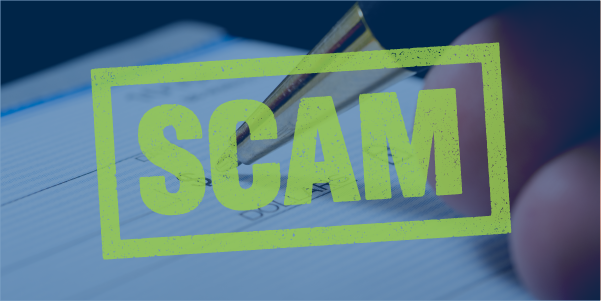Consumer Alerts
When you're in the know, you can stay one step ahead. We've made it a priority to keep you alerted to the latest scams and fraudulent activity so you can better protect yourself.
Consumer Alerts
When you're in the know, you can stay one step ahead. We've made it a priority to keep you alerted to the latest scams and fraudulent activity so you can better protect yourself.

CHECK WASHING FRAUD TRENDING
As long as there have been checks, there has been check fraud. Check washing is when criminals use chemicals to erase the ink on a check, and then rewrite the check to someone else for a different amount. This antiquated approach to check fraud has recently seen a resurgence.
But where are these criminals getting the checks? That too has evolved over time. Many times, checks are stolen directly from unsuspecting citizens’ mailboxes with their flags up, or even fished out of stand-alone USPS mail receptable boxes.
Review a full list of ways to protect yourself from check washing any other check fraud on our blog, Our 2 Cents.
Remote Desktop Scams
Be alert that scammers are trying to get you to allow them access or control over your computer. By doing so, you may be allowing access to your private information within which could permit a fraudster to gain control of your account(s) and the ability to transact within. Be very careful when opening emails that you are unaware of the sender, and ensure that you have the most up to date virus and malware protection at all times.
Consumers have allowed third parties to take control of their computers. In doing so, the fraudsters have signed victims up for Bank Online and used the External Transfer function to remove money from their accounts or lines of credit. The fraudsters claim that they have placed a deposit INTO their account, however the money is gone. In addition, victims are told to purchase gift cards and are instructed “not tell their bank about these transactions”.
IRS Tax Refund Scam
The IRS has discovered a new twist on the IRS Tax Refund scam that is utilizing the victims’ own bank accounts. Cybercriminals steal data to file fraudulent tax returns. Here’s the twist: The fraudulent tax returns are deposited in the victim’s own bank account. The criminals pose as a debt collection agency and contact the victim to say a refund has been mistakenly deposited into their account and ask the taxpayers to forward the money to the fraudsters. Take the following steps if you receive a direct deposit refund you did not request:
Remote Software Vulnerabilities
Cybercriminals and malicious state actors are targeting vulnerabilities in online remote login tools and virtual meeting environments to steal sensitive information, compromise financial activity, and disrupt business operations. Many criminals are forging online identity verification processes. Keep your login information secure and beware of suspicious scenarios.